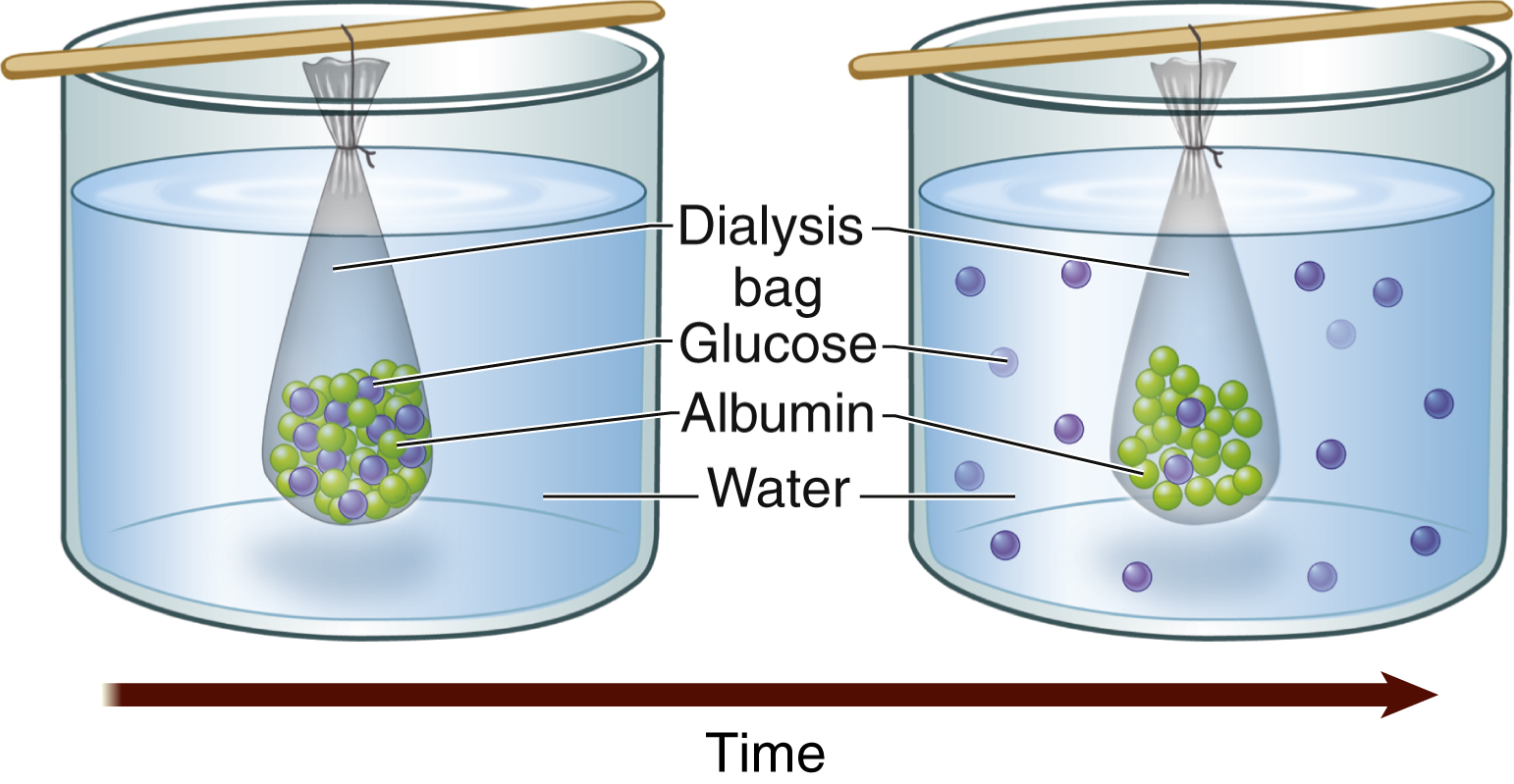dialysis /dī·al″isis/ [Gk dia + lysis, a loosening] , 1. the process of separating colloids and crystalline substances in solution by the difference in their rate of diffusion through a semipermeable membrane. 2. a medical procedure for the removal of certain elements from the blood or lymph by virtue of the difference in their rates of diffusion through an external semipermeable membrane or, in the case of peritoneal dialysis, through the peritoneum. Dialysis may be used to remove poisons and excessive amounts of drugs, to correct serious electrolyte and acid-base imbalances, and to remove urea, uric acid, and creatinine in cases of chronic end-stage renal disease. Dialysis involves diffusion of particles from an area of high to lower concentration, osmosis of fluid across the membrane from an area of lesser to one of greater concentration of particles, and ultrafiltration or movement of fluid across the membrane as a result of an artificially created pressure differential. See also hemodialysis, peritoneal dialysis.

